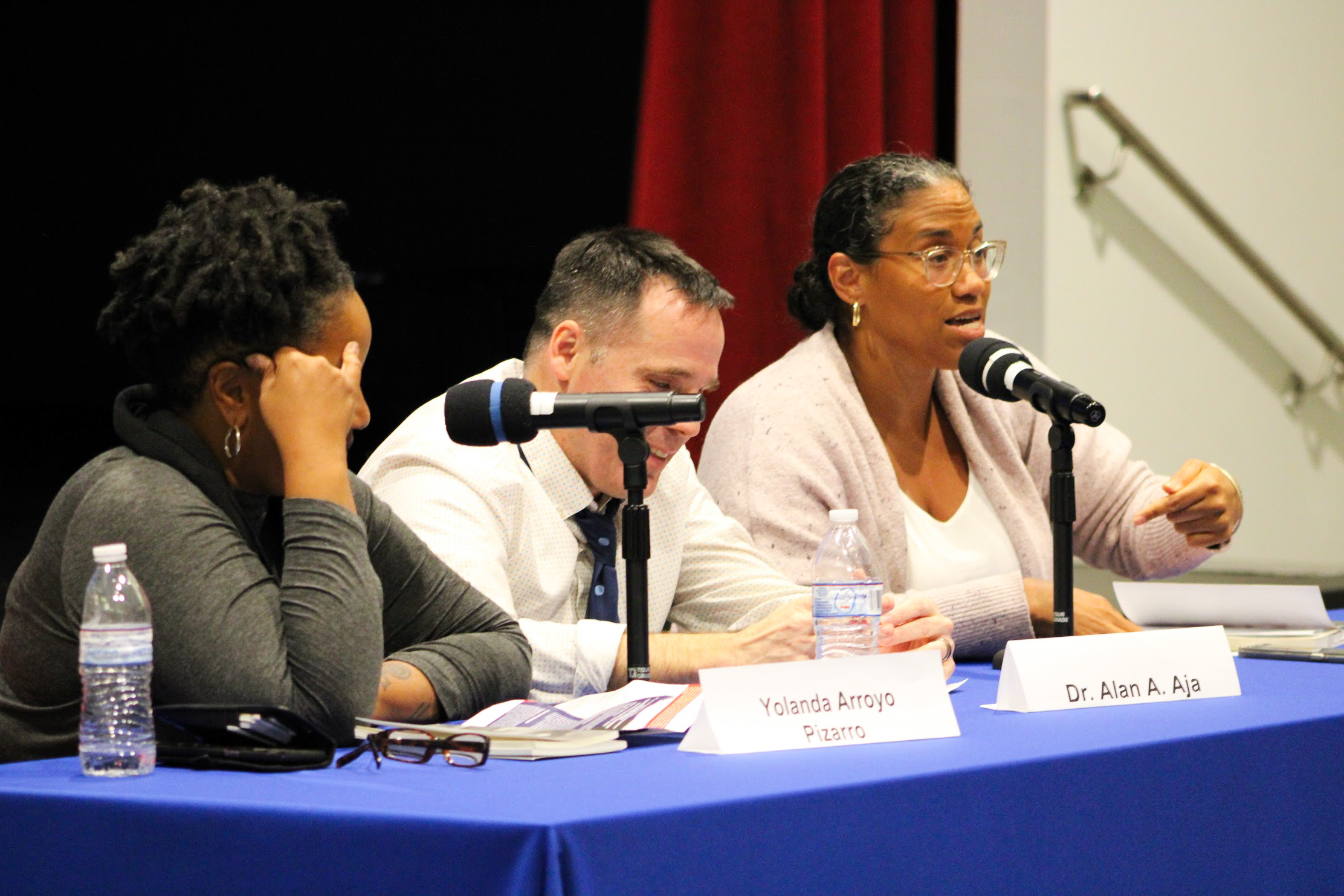
Pushing the boundaries of Afro-Latinidad in the United States
The 24th annual Arturo Schomburg Symposium on Feb. 29 detailed some of the many struggles of Afro-Latinos in the U.S. and the ways to push boundaries through…
The current narratives that often surround blackness and Afro-Latinidad in the United States have existed for centuries.
From a monolithic group of individuals, to a group devoid of a history, to one lacking the mental and physical capabilities to reach the top, the narratives are on-going.
For historian, writer, and activist Arturo Schomburg, the contributions and accomplishments of Black people were there, but had to be discovered. His life’s work in doing so is why the Schomburg Center for Research in Black Culture, one of the most prominent research libraries focused on the African diaspora, and the annual Schomburg Symposium hosted at Taller Puertorriqueño, are both named in his honor.
The 24th annual Schomburg Symposium on Feb. 29, featured panel discussions that coincided with this year’s theme, “Afro Latinx Struggles: Pushing Boundaries through Engagement."
The struggles for Afro-Latinos across both diasporas are vast, and the symposium served as a way to address them in a comprehensive way.
“We have blurred the lines between being Black and being Latino, and it’s not only about talking about identity, but also beyond that,” said Jesenia De Moya Correa, Latino Communities Features Reporter at the Philadelphia Inquirer and moderator for the morning panel of the 24th annual Schomburg Symposium.

The panelists highlighted both why Schomburg served as such an inspiration to Puerto Ricans, African Americans and Afro-Latinos alike, and why the struggles of those communities — including the racial wealth gap, the history of slavery and racism — exist throughout our society.
In the early part of the 20th century, Schomburg worked diligently to share information on the many contributions black people have had throughout history.
However, while his influence and impact were great, the documentation of his life’s work is scarce.
In fact, only two studies have ever been written about Schomburg — one in 1989 and one in 2017.
The most recent book, “Diasporic Blackness: The Life and Times of Arturo Alfonso Schomburg,” was written by Dr. Vanessa K. Valdés, director of the Black Studies Program at The City College of New York at CUNY, and one of the panelists at the event.
“In the entirety of his life, we just heard snippets of how this man was really important,” she said. “So, there’s so much work to be done on him.”
As Valdés did studies and led talks about Schomburg, she came across a perception from many that Blackness and Latinidad can’t go together.
However, there were many Latinos who were part of the Black Power Movement, Pan-African Movement, the UNIA and many others.
RELATED CONTENT
“It is our job, those of us who are in the position to write these histories, to recover them and present them and highlight them,” said Valdés.
That highlights a continuation of the work Schomburg did throughout his life, digging up the real history of black people beyond a white supremacist framework.
In 1911, Schomburg along with African American historian John Edward Bruce co-founded the Negro Society for Historical Research, a scholarly collective created to gather evidence of black excellence.
This eventually led to the founding of the Association for the Study of African American Life and History, which today, is the only remaining organization dedicated to the studying and appreciation of African Americans.
In 1925, Schomburg published an essay, titled “The Negro Digs Up His Past,” in which he detailed his findings throughout his studies of Black History.
In the essay, he outlines three conclusions: Black people have been active collaborators and pioneers in the struggle for their own freedom and advancement; Black people who reach attainment have been unfairly disassociated from the group at large; and the black race has had a record of immense achievement, particularly as it pertains to the beginnings and early developments of culture.
Overall, Schomburg spent his life working to combat the narrow views of Blackness and Latinidad across larger society — expanding it beyond the Motherland, beyond Europe, and detailing where it intersects.
When diving deeper on the issues that plague African Americans, Latinos, and Afro-Latinos, it can often be traced back to historical causes that continue to weave its way into current society.
The 24th annual Schomburg Symposium highlighted how teachings and engagements can go a long way towards addressing these issues in a way that is both effective and impactful.











LEAVE A COMMENT:
Join the discussion! Leave a comment.